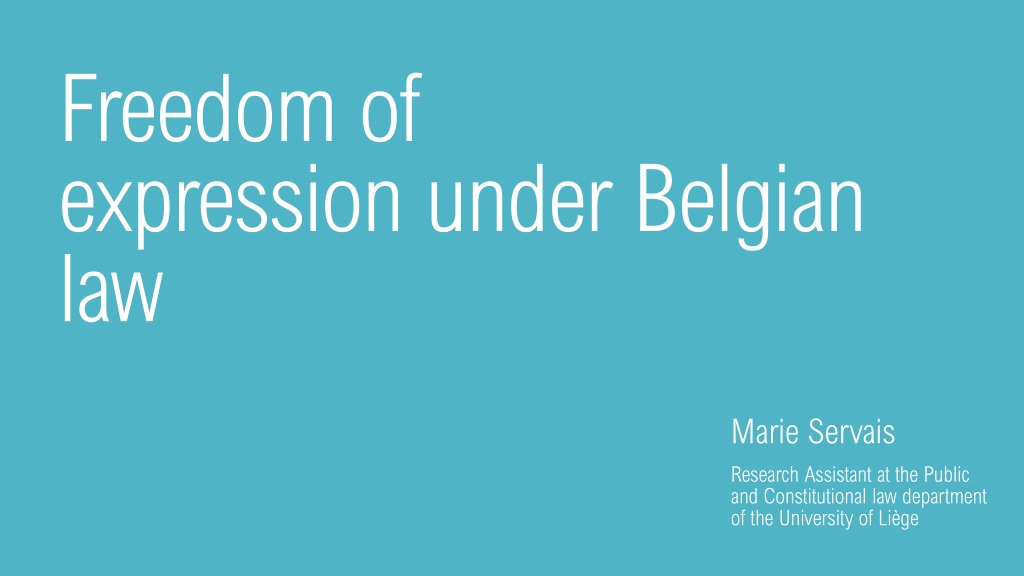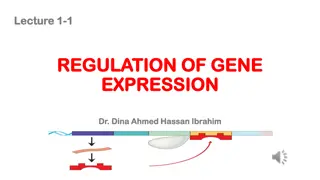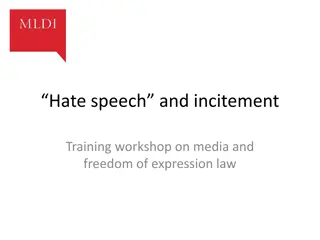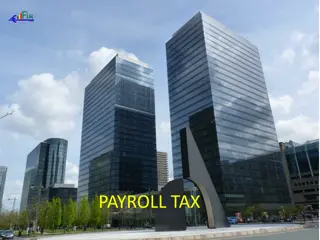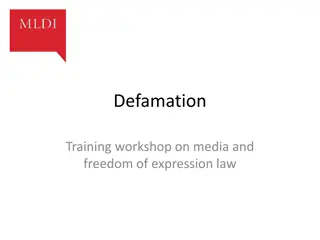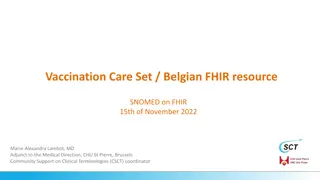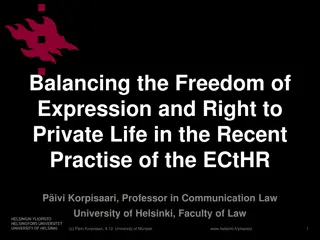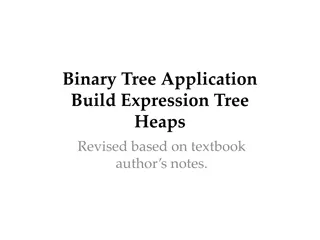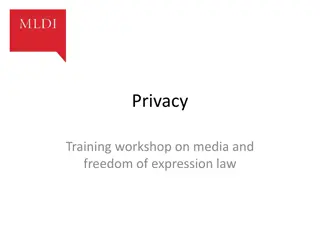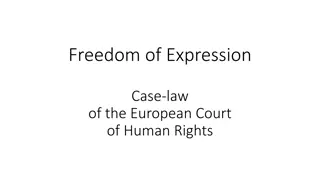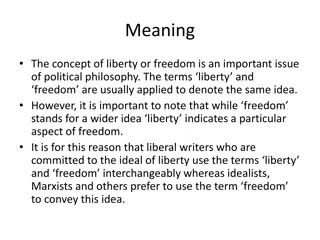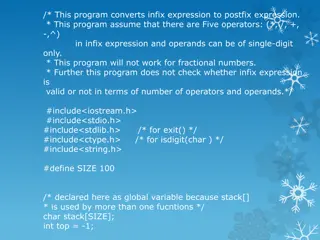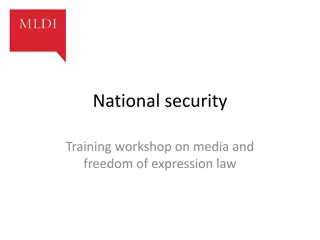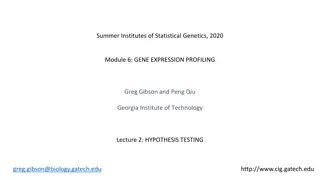Understanding Freedom of Expression under Belgian Law
Freedom of expression in Belgium is protected by the Constitution, guaranteeing the right to express opinions freely through various means. The Constitution ensures freedom of worship, public practice, and press, while specifying that offenses committed in the exercise of these freedoms can be punished. The concept of press freedom under Belgian law undergoes interpretations, extending to online publications and different media beyond traditional print. Recent legal views acknowledge the evolution of society, emphasizing the importance of relevant expression over mere insults or slander.
Download Presentation

Please find below an Image/Link to download the presentation.
The content on the website is provided AS IS for your information and personal use only. It may not be sold, licensed, or shared on other websites without obtaining consent from the author. Download presentation by click this link. If you encounter any issues during the download, it is possible that the publisher has removed the file from their server.
E N D
Presentation Transcript
Freedom of expression under Belgian law Marie Servais Research Assistant at the Public and Constitutional law department of the University of Li ge
Freedom of expression : definition The right to express spontaneously and freely its opinions in all matters and by all means, subject to the repression of offences committed in the exercise of this freedom" (Constitutional court, case n 24/96 of March 27, 1996). The freedom to seek, receive and spread information and ideas of all kinds ( ) either orally, in writing, in print or in the form of art or by any other means of his choice (Constitutional court, case n 9/2009 Of January 15, 2009).
The Belgian Constitution Article 19: Freedom of worship, its public practice and freedom to demonstrate one s opinions on all matters are guaranteed, but offences committed when this freedom is used may be punished . Article 25: The press is free; censorship can never be introduced; no security can be demanded from authors, publishers or printers. When the author is known and resident in Belgium, neither the publisher, the printer nor the distributor can be prosecuted .
Article 25 of the Constitution: Freedom of Press Censorship : the authorization that must be given by the State in order for the author to be allowed to publish something. Abuse of freedom of press: the publication of an article or of a picture which hurts the freedom of other people such as the right of honour, of image.
Article 25 of the Constitution: Freedom of Press Specific regime: Waterfalls liability; Trial by jury; Public proceedings.
Interpretationof the notion of press Supreme court, December 9, 1981 and June 2, 2006 : the protection of Article 25 of the Constitution is granted only to the written press. Supreme court, March 6 2012: a text published on the Internet does constitue a written document that may be covered by Article 25 of the Constitution. Distinction between written documents and audio-visual materials
Interpretationof the notion of press Court of Appeal of Li ge, May 28, 2019: It is obvious that nowadays, press offences can be committed on other media than the print media, including the Internet; the expression of a thought, which is required by the offence ( ) cannot be considered within the meaning of the Constitution and in accordance with the evolution of society, as any thought, without taking into account its relevance such as mere insults or slander. There must be an argumentative logic, a logical way of thinking, a pamphlet etc. ( ). It It is is therefore therefore apparent original original legislator legislator was was not not to to create create a a special special jurisdiction Article Article 150 150 of of the the Constitution Constitution for for the the digital digital era small small talk talk . apparent that jurisdiction privilege era for for individuals individuals feeding that the privilege pursuant feeding the the intention intention of of the pursuant to to the the web web
Article 58 of the Constitution No member of either House can be prosecuted or be the subject of any investigation with regard to opinions expressed and votes cast by him in the exercise of his duties .
Slanderand defamation Article 443 of the Criminal code: any person who, in the cases hereinafter indicated, has improperly imputed to a person a specific fact which is likely to damage that person's honour or expose him to public contempt, and whose legal evidence is not proven, is guilty of slander where the law admits the evidence of the imputed fact, and of defamation where the law does not admit that evidence .
Slanderand defamation 1. The imputation of a specific fact to a specified person 2. An act likely to damage the honour of the latter or to expose it to public contempt 3. A fact for which legal proof is not provided or for which the law does not admit the proof 4. A malicious intention 5. The disclosure of the imputation
Tort law Article 1382 of the Civil code: Any act whatever of man, which causes damage to another, obliges the one by whose fault it occurred, to compensate it.
Act of 30 July 1981 on the repression of certain acts inspired xenophobia by racism or Anyone who disseminates ideas based on racial superiority or hatred and anyone who is a member of a group or association which, manifestly and repeatedly, advocates or assists discrimination or segregation on the basis of one of the protected criteria in the circumstances set out in Article 444 of the Criminal code.
The Offenceof negationism(Actof March 23, 1995) Punished the behaviour of denying, minimizing, justifying or approving the genocide committed by the German National Socialist regime during World War II. Article 2 of the International Convention of 9 December 1948 on the Prevention and Punishment of the Crime of Genocide. Extension of the scope of application: Rwanda and Srebrenica s genocides.
Conflitcs of laws and restrictions to freedomofexpression The restriction must be provided for by law ; the restriction must pursue a legitimate goal ; the restriction must be necessary in a democratic society.
Freedom of expression under Belgian law Marie Servais Research Assistant at the Public and Constitutional law department of the University of Li ge
